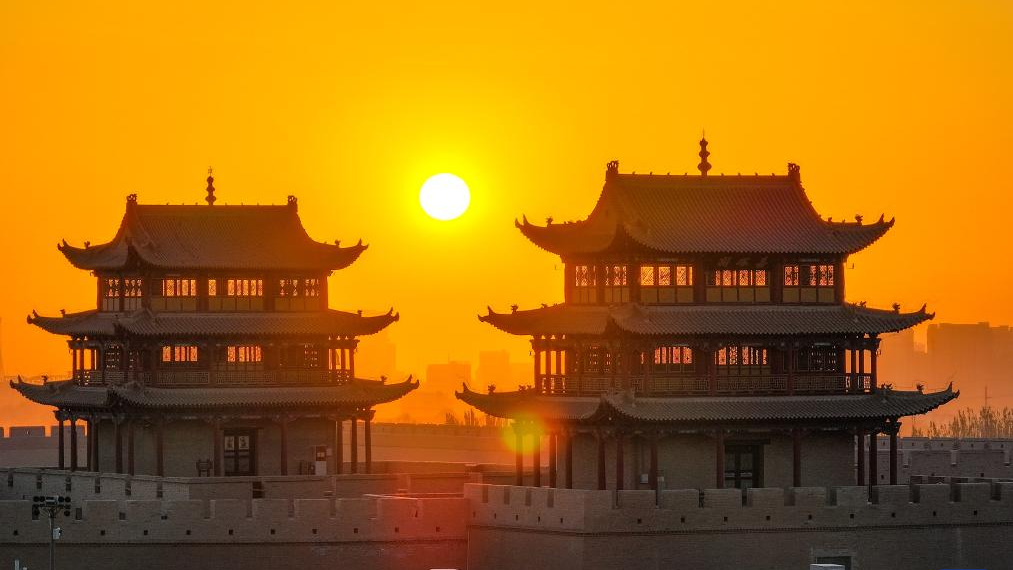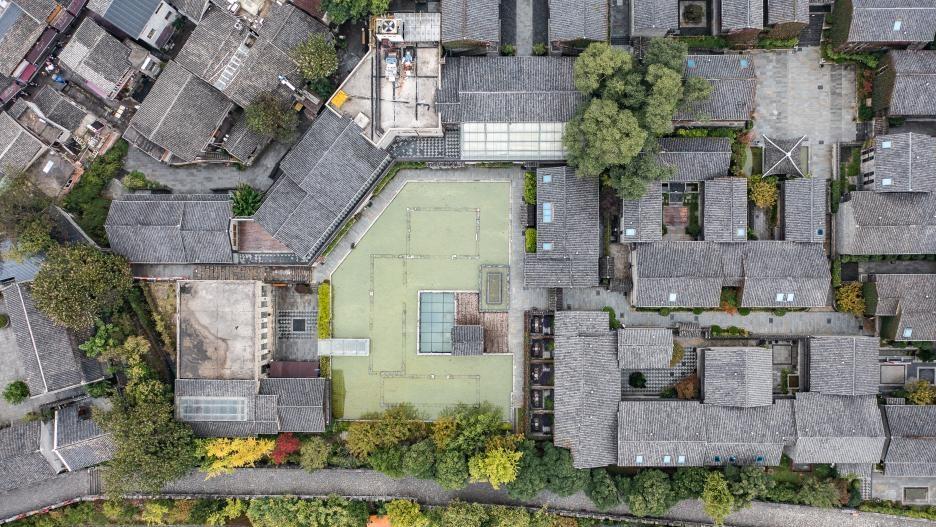Trade frameworks linking China, Africa set to broaden
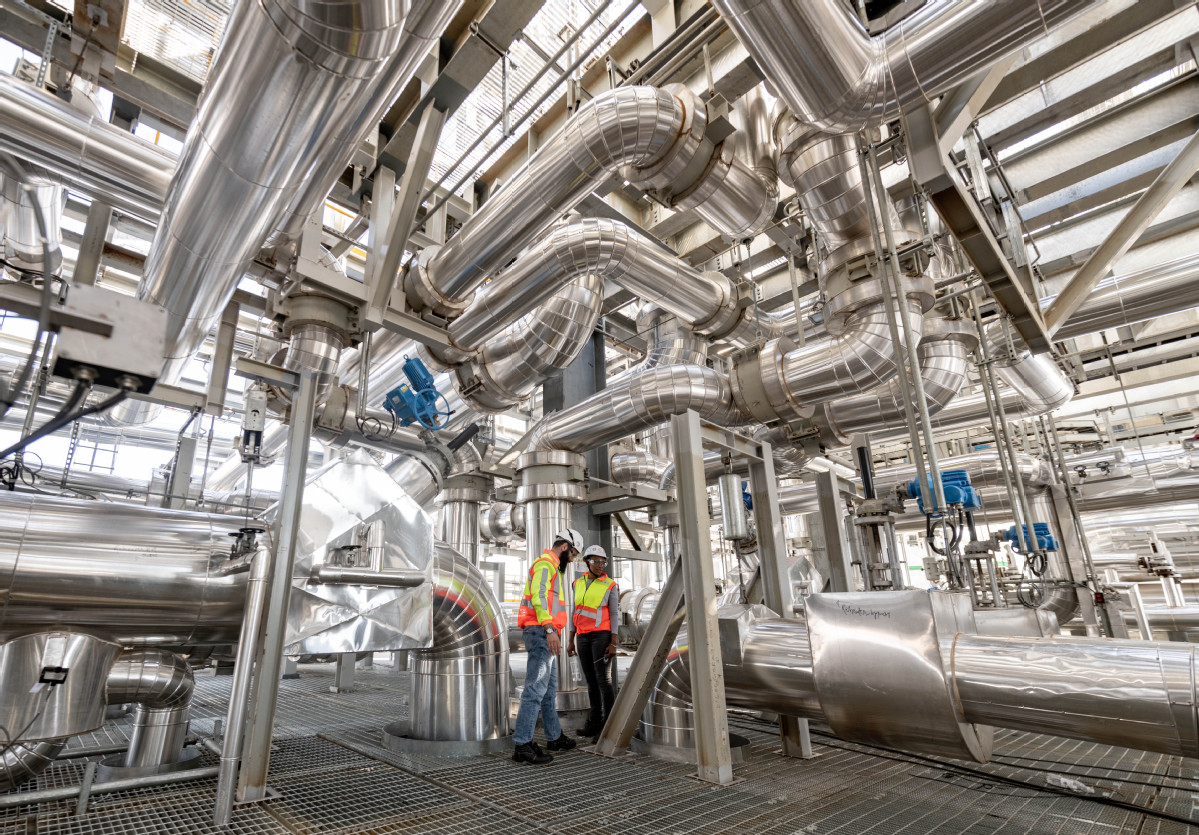
Employees work on a solar thermal power project in Northern Cape, South Africa, on August 20. (ZHANG YUDONG/XINHUA)
In the face of a turbulent global landscape, characterized by escalating geopolitical tensions and rising protectionism, China and Africa should lean toward embracing globalization and win-win cooperation more than ever before, to benefit their own populations and catalyze the modernization of the broader Global South, experts said.
As an industrialized nation partnering with less industrialized counterparts, the deepening cooperation between China and Africa has emerged as a model example for other developing regions seeking to emancipate themselves from the constraints of the traditional North-South divide, they added.
Their comments came after the overall characterization of China-Africa relations was elevated to an all-weather China-Africa community with a shared future for the new era during the Summit of the Forum on China-Africa Cooperation in Beijing in early September.
Collaboration between the world's largest developing country, China, and the continent with the highest concentration of developing nations, Africa, transcends mere economic development, said Ye Hailin, dean of the China-Africa Institute at the Chinese Academy of Social Sciences.
Through channels such as the Belt and Road Initiative and the FOCAC, the two sides have been expanding trade and investment ties, enhancing infrastructure connectivity, and fostering cultural exchanges, Ye added.
For the 15th consecutive year, China has firmly cemented its status as Africa's number one trade partner, with the volume of China-Africa trade continuing to account for a steadily increasing share of the continent's overall foreign trade.
Data from the Ministry of Commerce showed that the trade volume between China and Africa surged to a historic peak of $282.1 billion last year, marking an increase of nearly 35 percent compared to 2013 figures.
To ensure greater market openness and trade facilitation with Africa, China announced its decision at the summit to grant 100 percent tariff-free treatment on products from all the least developed countries that have established diplomatic relations with China — 33 nations across the African continent.
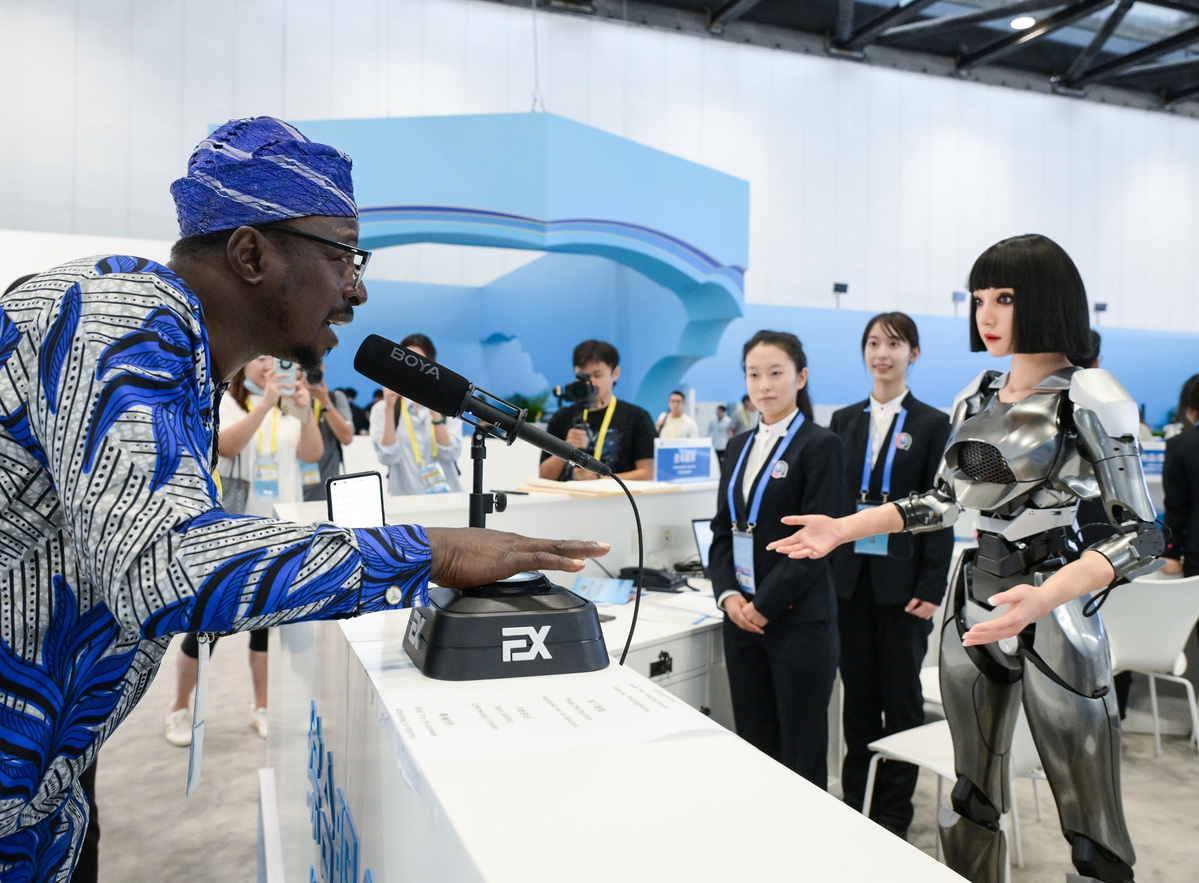
An African journalist interacts with an intelligent robot during the 2024 Summit of the Forum on China-Africa Cooperation in Beijing on Sept 3. (LI HE/XINHUA)
This initiative aims to transform the vast Chinese market into a significant opportunity for African nations and enhance their integration into the global economy, said Sang Baichuan, dean of the Institute of International Economy at the University of International Business and Economics.
In recent years, African countries have encountered obstacles in their development path, struggling to boost export volumes. China's move comes as timely and much-needed support, Sang said.
Nevertheless, there are fundamental issues that require attention, notably the necessity to broaden the trade frameworks linking the two regions. Sectors like e-commerce and sustainable development offer auspicious prospects, Sang added.
While trade acts as a key element of China-Africa collaboration, another notable facet emphasizing the strength of the partnership is the considerable increase in direct investment, especially from China into Africa.
As of the end of 2023, China's cumulative direct investments in Africa had surged past the $40 billion mark, solidifying its position as one of the primary sources of foreign capital for countries across the continent, according to the China Council for the Promotion of International Trade.
China's investments in Africa are increasingly expanding beyond traditional industries, said Wang Xiaosong, a professor at Renmin University of China's School of Economics.
While infrastructure, manufacturing, and agriculture have long been the focus of China's engagement on the continent, the country is now directing more funding toward emerging sectors like green development and the digital economy, Wang said.
Major Chinese e-commerce platforms such as Alibaba and Pinduoduo have launched dedicated efforts to penetrate African markets, leveraging their extensive product catalogs and logistics networks to cater to the continent's growing consumer class.
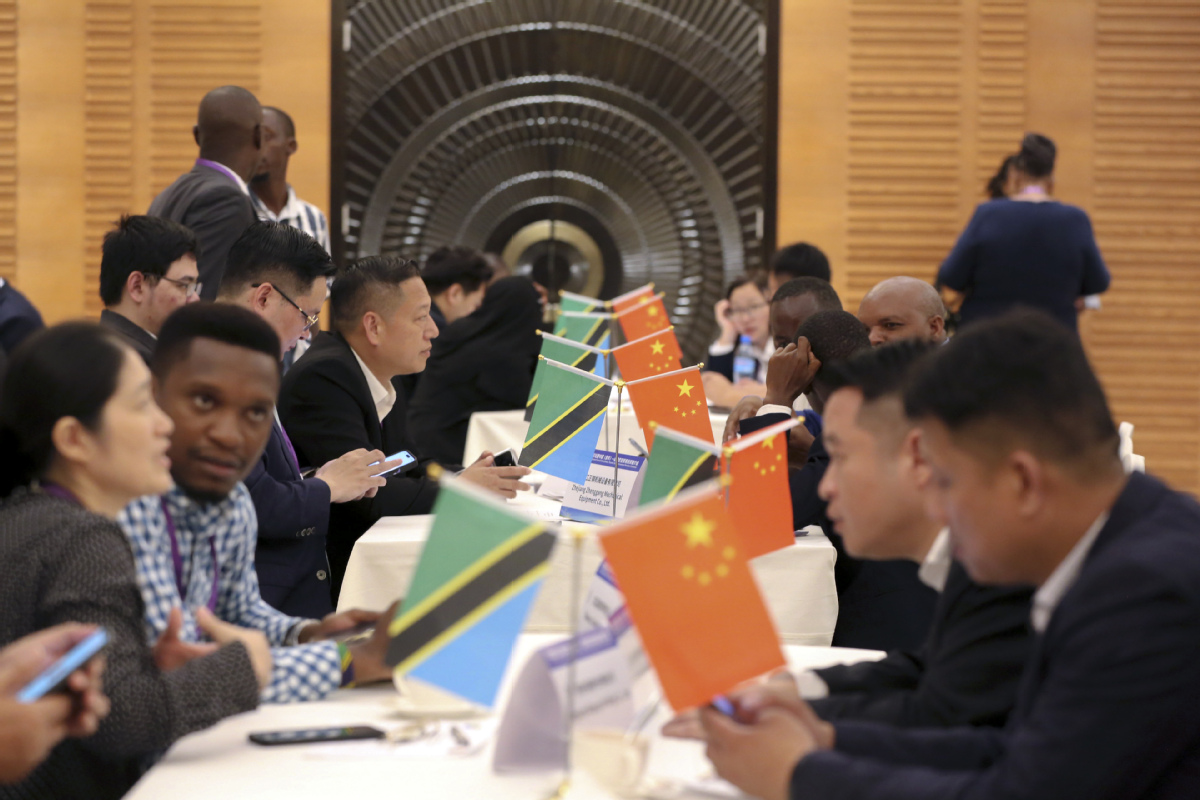
Chinese investors (right) communicate with Tanzanian business representatives during the China Tanzania Investment Forum Zhejiang (Jinhua)-Tanzania Trade and Investment Conference in Dar es Salaam, Tanzania, on March 27. (Photo/XINHUA)
Cross-border e-commerce represents a significant opportunity for China to deepen its economic ties with Africa. By bringing their proven e-commerce models to African consumers, Chinese platforms can open up new channels for trade and investment, Wang added.
Chinese enterprises have already established a strong presence across Africa, but there is tremendous untapped potential to grow these relationships further, Wang said.
The Chinese government has announced plans to facilitate at least 70 billion yuan ($9.9 billion) in investments by Chinese companies in Africa over the next three years. Meanwhile, China and Africa will establish a joint digital technology cooperation center and announce plans for 20 flagship digital demonstration projects.
Lei Jun, founder and chairman of Chinese smartphone maker Xiaomi, said that Africa's economic dynamism and policy focus on sustainable development make it a compelling investment destination for Xiaomi.
Africa continues to outpace global economic growth, buoyed by the launch of the African Continental Free Trade Area, which has driven greater cross-border trade and market integration, Lei said.
"We see tremendous potential to partner with African businesses in emerging sectors like new energy vehicles and other green technologies," Lei said, adding that building on its presence in 16 African countries, including Egypt, Nigeria and Kenya, Xiaomi is gearing up to increase its investments across the continent.
That said, without closely interconnected infrastructure, discussions about unimpeded trade, financial integration and people-to-people exchange would be impossible, experts said.
Infrastructure is the cornerstone of Africa's development. Improving infrastructure conditions is a common expectation and urgent desire of African countries, said Xu Hongcai, deputy director of the China Association of Policy Science's Economic Policy Committee.
However, the African Development Bank estimated that infrastructure development requires between $130 billion and $170 billion annually, with a funding gap of $68 billion to $108 billion.
While infrastructure investment has faced headwinds in certain regions, China's infrastructure push in Africa has persisted, to deliver much-needed transportation, energy, and telecommunications projects, Xu said.
Over the past decade, Chinese firms have constructed or refurbished an expansive network of critical transport, energy, and communications systems that are helping to integrate Africa's economies and facilitate greater regional connectivity, from a major new port facility in Djibouti to a transnational railway network linking Kenya, Uganda and South Sudan.
The numbers speak for themselves — Chinese companies have built or upgraded over 10,000 kilometers of railways, nearly 100,000 kilometers of roads, around 1,000 bridges, close to 100 ports, 66,000 kilometers of power transmission lines, and 150,000 kilometers of backbone communication networks, according to the National Development and Reform Commission.
Chinese firms have played an outsized role in bridging Africa's massive infrastructure gaps. This has been a game-changer, paving the way for accelerated economic growth, boosted local job creation, and integration across the continent, Xu said.
Going forward, China will implement 30 major infrastructure connectivity projects across the African continent, in a move aimed at deepening China-Africa cooperation under the Belt and Road Initiative and supporting the development of the African Continental Free Trade Area.
However, a narrative has been propagated by some Western media outlets, attempting to sensationalize China's engagement in Africa through BRI projects by labeling it as a form of "debt trap diplomacy".
The strategic partnerships forged through infrastructure projects, trade agreements, and diplomatic engagements have not only bolstered Africa's path toward sustainable development, but also strengthened bonds of friendship and mutual benefit between China and Africa, Ye, who is with the China-Africa Institute, said.
Amid these advancements, a shift in dynamics is becoming increasingly evident, with Western influence in Africa encountering economic setbacks similar to those experienced in other regions, Ye said, adding that African nations are no longer willing to be coerced by Western powers.
As Western powers witness a waning of their influence in Africa, they are grappling with a need to deflect attention from their own shortcomings and find a scapegoat to mask their ineffectiveness, Ye said.
Looking ahead, China and Africa will deepen the alignment between the BRI and the African Union's Agenda 2063, to empower African nations not just by "providing fish, but by imparting the art of fishing", Ye said.
Central to this collaboration is the goal of facilitating Africa's industrialization and fostering localized production of industrial goods, aiming to address the historic imbalance in industrial and agricultural development that has persisted since the colonial era and prevent African countries from being mere markets for Western industrial products, experts said.
Chinese industrial products have strong competitiveness in Africa, helping improve the livelihoods of many people in African countries, boosting economic development, and catalyzing the pace of their local industrialization, Ye said.
However, this is not enough. Therefore, it's important to further encourage the localized realization of industrialization in Africa. This means manufacturing products in Africa are tailored for the African market, so that industrialization in Africa can directly benefit the African people. China has sufficient experience, technology, and funding to assist Africa in achieving this goal, Ye said.
As the world grapples with a multitude of global challenges, from climate change to the lingering impacts of the COVID-19 pandemic, China-Africa cooperation has demonstrated the potential for developing countries to work together, leverage their complementarities, and foster innovative solutions that prioritize their common interests and development aspirations, Ye added.
Photos
Related Stories
- Construction on Chinese-built bridge in Tanzania completed
- China-Africa seminar held in Tunisia to explore future partnership prospects
- Experts, officials call for stronger China-Africa cooperation via Global Development Initiative
- African students pursue dreams, build future in China
- Profile: Tilling land, touching hearts: Chinese agriculture professor's dedication to Africa
Copyright © 2024 People's Daily Online. All Rights Reserved.






